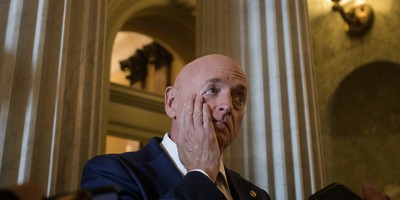It is only a week away. Next Friday will be November 22nd and the 50th anniversary. Dallas is steeling itself for the attention, the crowds, the people everywhere with their smartphones taking pictures. Nothing is real now till it is becoming an image. Not even that unreal day half a century ago now.
Tourists will shoot pictures -- I hate that word, shoot, in this context -- of the restored old Texas Theatre on West Jefferson in the Oak Cliff neighborhood. That's where the assassin had tried to hide in the darkness after having killed again -- this time a police officer named J.D. Tippit who'd stopped him as he hurried along a sidewalk, disheveled, walking fast, as if he had an appointment somewhere down below. "War is Hell" was playing at the Texas that day. The marquee will still say so.
Time has stopped again, just as it did that day, which was covered in its own darkness somewhere in the shadowland between fear and confusion, disbelief and the American propensity to believe anything -- a darkness so thick it could be felt, lit only by the flickering black-and-white images on the televisions left on night and day. So they could record the next ghastly vision as the assassin was himself assassinated. Would this air-conditioned nightmare never stop?
Fear and confusion were everywhere. What to believe? Conspiracy theories filled the air. The Birchers had done it, it was all Dallas' fault, with all those right-wing, oil-rich, gun-toting cowboys loose over there. In Moscow, the Russians kept saying they had nothing -- nothing! -- to do with all this. Nyet! As if they knew of Comrade Oswald's political leanings and his time in Moscow and Minsk, and were already trying to deflect attention from all that. Naturally they succeeded only in attracting it, like a disheveled type hurrying down a sidewalk with a still-smoking gun tucked into his waistband....
Recommended
Nov. 22, 1963, to Nov. 22, 2013. Fifty years. There will be speeches and documentaries. And what will they say? What is it we will read the next day? To quote Shakespeare's prince of Denmark, words, words, words. The same newscasts, the same bulletins, the same confusions and consternations we heard 50 years ago as our own prince lay dead on a gurney at Parkland Hospital.
And then came ... the music. Haunting, ethereal, resolving into resignation and acceptance and renewal, like a chord. Like death and transfiguration. They played it night and day, like light dispelling darkness. It was Samuel Barber's "Adagio for Strings." Comprehensive, dissolving, comforting the mourners and girding the spirit for whatever lay ahead.
Barber's work filled the air that black Thanksgiving weekend, just as it surely will again next Friday, for music still has charms to soothe a savage breast at such moments. But only if it is the Music of the Spheres -- unearthly, perfect, enduring, circling again and again. Just as it did then on the death of a president. Just as John Tavener's haunting, ethereal, resolving -- and passionate -- choral work ("Song for Athene") did on the death of Princess Diana -- a fitting, contemporary, mirror-response to Ravel's unending "Pavane for a Dead Princess."
This week brought news of John Tavener's own death at 69, the end of a remarkable life -- but scarcely of his music, which will be reborn again and again, and be kept in reserve like a national treasure for those times when words, words, words will never be enough.
What is the secret of Barber's -- and Tavener's -- enduring power to comfort and elevate? Why do we turn to them in moments of intimate personal grief and in shared, national mourning? Maybe it is because they enter so wholly into tradition that they create it anew, and become traditions themselves.
A curious man, John Tavener, who led a curious life that, however circuitous, always led back to the inexhaustible wellspring that is tradition. Even if his music seemed utterly new at times. In the tradition of John Cage's. As when he was composing works that would entrance John Lennon of Beatles fame, or a piece of chamber music like "The Whale," which to the uninitiated doesn't sound like music at all. But rather the bleeps and echoes of undersea sonar, or maybe the echo of a fetal heartbeat in a sonogram. Unforgettable sounds. Like all the music of John Tavener's old age, which no one expected him to reach, besieged by as many health problems as he was.
John Tavener's picture could appear in a medical text as a casebook illustration of Marfan Syndrome, right alongside Abraham Lincoln's. He was 6-foot-6, rail-thin, otherworldly yet completely focused when composing what would be great, enduring work for the comfort of generations.
The composer would seem lost time and again in his life's journey. He was just another rock star in the making back in the atrocious 1970s. Then he, too, saw a great light. Not on the road to Damascus but to Greenwich Village, and turned back. From it all. It happened in 1977, when a clever archbishop of the Russian Orthodox Church, gentle as a dove and cunning as the serpent, asked him to compose a liturgical work. And he was born again, discovering in the church's traditional liturgy a wonder not even he, with all his talent as child and then adult prodigy, had ever suspected.
In youth and age, John Tavener was always seeking, finding even as he was being found, comforting even as he was comforted. And giving us all something to hold onto, even on November 22nd, and the November 22nds sure to come in the sweeping tragedy that is history. On his death he bequeaths strength and peace and resolution. To all.

























Join the conversation as a VIP Member